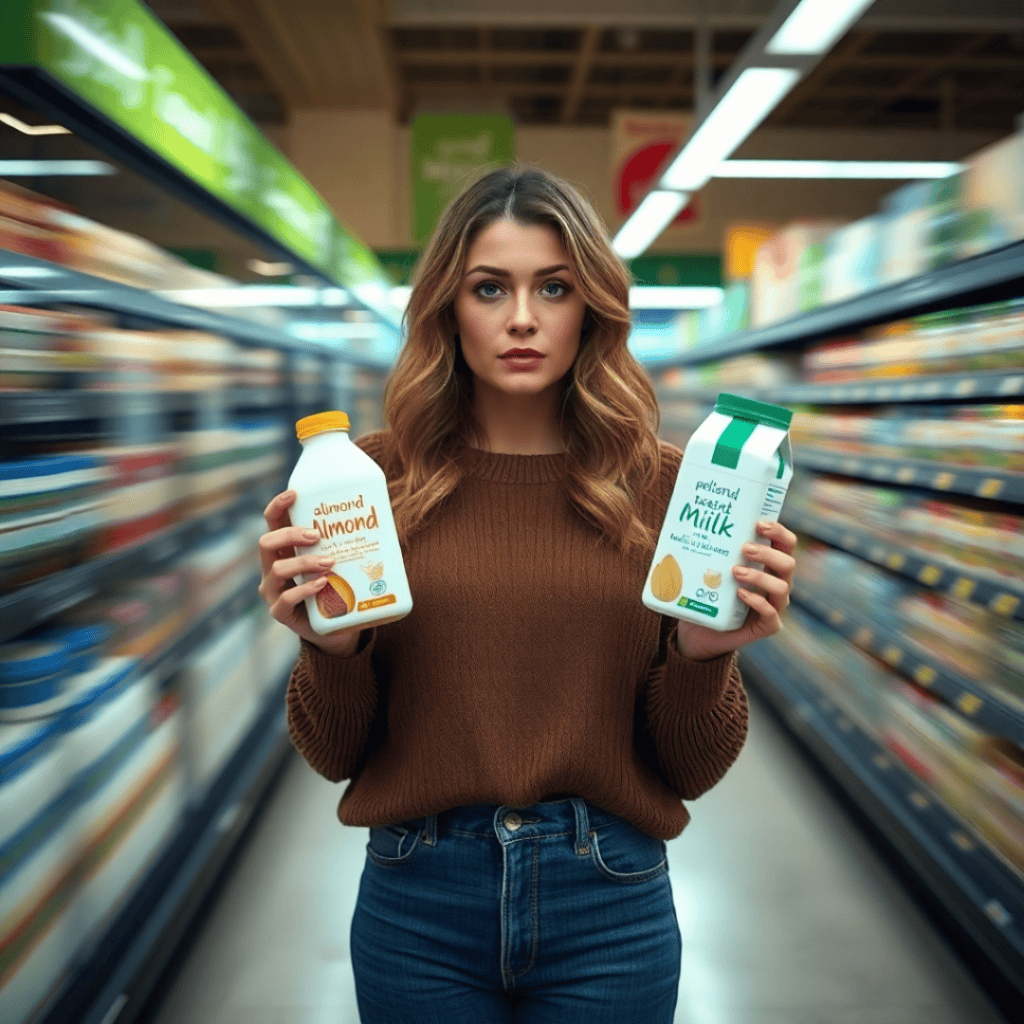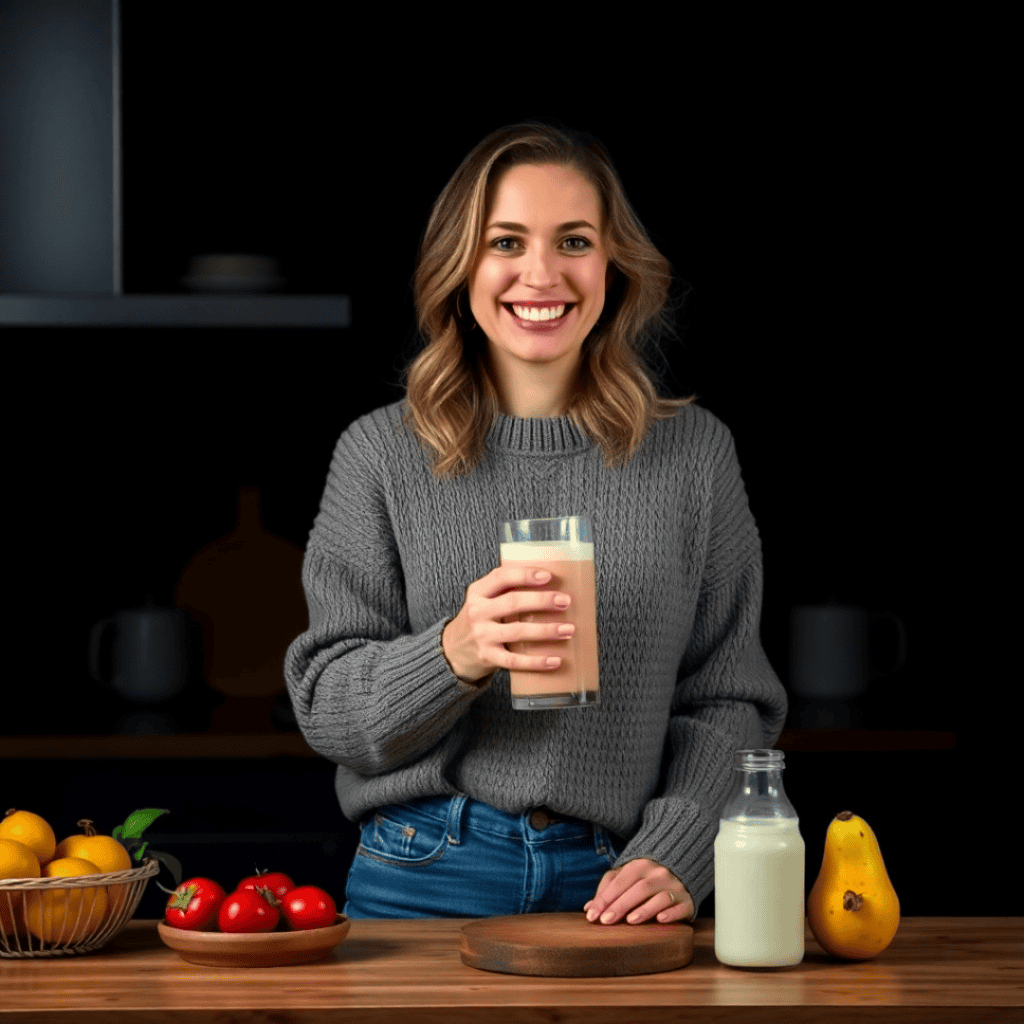
Welcome to the Great Dairy Debate!
Ah, dairy—the creamy, delicious, often-debated food group. For years, we’ve been told that milk builds strong bones, cheese makes everything better, and yogurt is a probiotic powerhouse. But when it comes to dairy and breast cancer, the conversation gets a little, well… complicated. Some studies suggest dairy could increase breast cancer risk, while others argue it’s beneficial. To explore the potential impact of diet on breast cancer, check out our post Breast Cancer Diet: How Nutrition Supports Prevention and Recovery. So, what’s the truth? Should you swear off cheese forever or embrace it like an old friend? Let’s break it down—no science degree required.
How Does Diet Affect Breast Cancer Risk?
First, let’s talk about how food and breast cancer are connected. Cancer is a complex disease influenced by genetics, environment, hormones, and lifestyle choices—including what’s on your plate. Certain foods may promote inflammation, fuel cancer cell growth, or influence hormone levels. Learn more about the relationship between inflammation and cancer and why it matters.. Others, like antioxidant-rich fruits and veggies, can help your body fight back. So, where does dairy fit in?
The Science Behind Dairy and Breast Cancer

The research on milk and cancer risk is a bit of a rollercoaster. Let’s look at both sides. For more on how diet impacts cancer risk, read Colon Cancer Risk Factors: What Increases Your Risk and How to Take Control.
The Case Against Dairy
- Hormones in Milk – Cows naturally produce estrogen and progesterone, which can end up in dairy products. Since breast cancer is often hormone-sensitive, consuming extra hormones from food might not be ideal.
- IGF-1 (Insulin-Like Growth Factor-1) – This protein promotes cell growth, which is great for baby cows but potentially problematic for humans. High levels of IGF-1 have been linked to cancer cell proliferation.
- High-Fat Dairy Concerns – Some studies suggest full-fat dairy could increase breast cancer risk due to saturated fats and estrogen levels.
- A 2017 study in the International Journal of Cancer found that women who consumed high amounts of whole milk and cheese had a higher risk of breast cancer compared to those who didn’t (source).
The Case for Keeping Dairy
- Calcium and Vitamin D – These nutrients are essential for bone health and may even offer some protection against breast cancer.
- Probiotics in Fermented Dairy – Yogurt and kefir contain gut-friendly bacteria, which may help reduce inflammation and support immune function.
- Low-Fat Dairy and Protective Effects – Some research suggests that low-fat dairy could actually be protective against breast cancer.
- A 2013 study in the Journal of the National Cancer Institute found that consuming low-fat dairy wasn’t linked to an increased risk, while high-fat dairy was (source).

Dairy, Estrogen, and Breast Cancer – The Hormone Connection
If hormone-sensitive breast cancer is a concern, dairy might raise some eyebrows. Cow’s milk naturally contains estrogen—even more so if the cow was pregnant when milk was collected (which is pretty common). Since estrogen fuels some breast cancer types, there’s a theory that consuming dairy could increase risk. However, before you panic and throw out all your yogurt, keep in mind:
- The hormone levels in dairy are relatively low compared to what your body produces naturally.
- Organic or hormone-free dairy may contain fewer added hormones, but natural ones are still present.
- The biggest concern is for women with estrogen-receptor-positive (ER+) breast cancer, who may be more sensitive to extra estrogen in their diet.
Should You Go Dairy-Free? Pros and Cons
If the dairy and breast cancer conversation has you considering a dairy-free diet for cancer prevention, let’s weigh the pros and cons.
Potential Benefits of Ditching Dairy
- May Reduce Hormone Exposure – Eliminating dairy means fewer estrogen and IGF-1 concerns.
- Could Reduce Inflammation – Some people report feeling less bloated, more energetic, and less inflamed when cutting dairy.
- Encourages More Plant-Based Choices – A dairy-free diet often leads to increased intake of plant-based foods, which may reduce cancer risk.
Downsides of Going Dairy-Free
- Calcium and Vitamin D Deficiency – Dairy is a major source of these nutrients. If you go dairy-free, you’ll need good replacements like leafy greens, almonds, and fortified plant milks.
- Not All Dairy-Free Alternatives Are Healthy – Some almond, oat, and soy milks contain added sugars, thickeners, and preservatives. Always read labels.
- Lack of Probiotics – If you cut dairy, make sure to replace gut-friendly probiotics with fermented foods like kimchi, sauerkraut, or non-dairy yogurts.

Best Dairy Alternatives for Breast Health
If you’re considering a dairy-free diet for cancer prevention, here are some great substitutes:
- Almond Milk – Low in calories but lacks protein. Look for unsweetened versions.
- Soy Milk – High in protein and closest to dairy in nutrients. But what about soy and breast cancer? Research suggests moderate soy consumption is safe and may even be protective. Check out our post on Does Sugar Cause Cancer? for insights on other dietary considerations.
- Oat Milk – Creamy and delicious, but often higher in sugar and carbs.
- Coconut Milk – Good for cooking but high in saturated fats.
- Cashew Milk – Creamy and mild but lacks protein.
The key? Choose minimally processed options without added sugars or oils.

So, Is Dairy Bad for Breast Cancer Patients?
The answer isn’t one-size-fits-all. It depends on:
- Your personal health history (hormone-sensitive cancer vs. non-hormonal)
- How much dairy you consume (moderation is key)
- What type of dairy you eat (low-fat vs. high-fat, organic vs. conventional)
If you’re concerned, talk to your doctor or a nutritionist to make the best choice for you.
Final Thoughts: Should You Keep or Cut Dairy?
At the end of the day, dairy is just one piece of the puzzle. Whether you decide to keep it in your diet or go dairy-free, focus on a balanced, plant-rich diet full of whole foods.
Key Takeaways
- The link between dairy and breast cancer is still being studied, and results are mixed. To explore how other lifestyle factors might impact your risk, check out Exercise and Breast Cancer: How Moving Your Body Can Protect Your Health.
- Full-fat dairy may increase risk, while low-fat dairy may be neutral or even beneficial.
- If you’re worried about hormones in dairy, consider plant-based alternatives.
- A dairy-free diet for cancer prevention can be healthy—but make sure to get enough calcium, vitamin D, and probiotics from other sources.
The best diet? The one that makes you feel good and supports your health.
